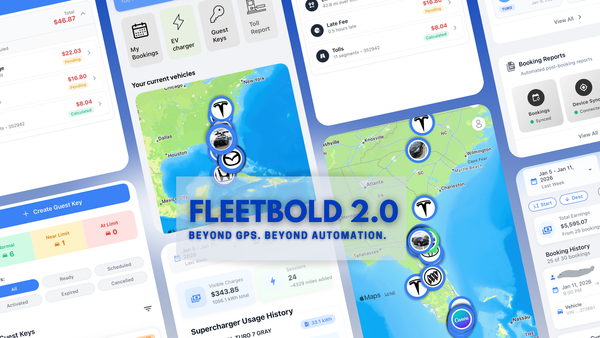Car Sharing Is Changing: How Turo’s New Metrics Are Breaking the Host Community
Turo rose by empowering its host community. But new performance metrics and pressure systems are now alienating the very people who built the platform.

Introduction
Turo scaled by turning everyday vehicle owners into entrepreneurs. Hosts were more than users they were the platform. But as Turo matures and shifts focus toward financial optimization, its new metric systems are slowly fracturing the same community that made it great.
This blog unpacks the unintended consequences of post-growth platform behavior and how even the smartest companies can alienate their core users when data becomes more important than people.
From Empowerment to Performance Management
The Original Promise: You Bring the Car, We Bring the Platform
Turo originally sold freedom: hosts could rent out their vehicles, set their pricing, and grow at their own pace. The reward was extra income, flexibility, and the sense of being part of a new economy.
But once growth plateaued, the narrative shifted.
Now, being a Power Host means hitting automated KPIs every quarter acceptance rates, response times, five-star reviews, cancellation rates, etc. These numbers aren't just for dashboards they’re the gatekeepers to visibility, rewards, and protections.
And they're breaking people.
The New Metrics: Designed for Efficiency, Built for Burnout
Power Host Qualification: Too Much, Too Fast
Turo’s Power Host badge used to be a recognition of trust and commitment. Today, it feels more like a pressure cooker. Veteran hosts must operate with machine-like precision to avoid losing their status.
The real issue? These rules are easier to follow when you're small.
New hosts with one or two vehicles can hit every metric without stress. But seasoned hosts managing 10, 20, or 50 vehicles? One late response or unavoidable cancellation can tank their score.
Turo’s system treats both cases the same without context. That’s the disconnect.
What Hosts Are Saying: Fatigue, Friction, and Quiet Resentment
Across Facebook groups, Reddit threads, and private forums, longtime hosts are expressing the same sentiment: we feel replaceable.
Hosts who:
- Have rented out hundreds of cars,
- Invested in professional cleaning, check-in systems, and keyless setups,
- Created YouTube content promoting Turo,
...are now punished for human errors and getting buried under rigid automation.
Some even describe the feeling as betrayal like Uber drivers once did when bonuses were cut and new standards were enforced without notice.
Gamifying the Wrong Behaviors
One of the side effects of the new system is that it rewards short-term optimization over long-term sustainability.
- Hosts are prioritizing metrics over service.
- Some even offer guests snacks or bottled water not for hospitality, but for the review boost.
- Others cancel real bookings to avoid late returns that could affect their scores.
This kind of metric gaming is what destroyed trust in platforms like Uber and Lyft. And it's now creeping into Turo.
How Growth Pressure Unintentionally Destroys Loyalty
Turo’s leadership likely sees these systems as necessary for consistency at scale. That’s understandable. But the way it’s being enforced uniformly and impersonally is damaging their biggest asset: trust.
When platforms stop differentiating between experienced power users and casual hobbyists, they dilute the value of seniority and incentivize churn.
If nothing changes, the result will be:
- Experienced hosts scaling down or exiting.
- New hosts filling the gap, but with higher risk and lower service.
- A community that no longer defends or promotes the platform organically.
Conclusion: Fixing the Invisible Damage
Turo didn’t grow because of metrics. It grew because of humans willing to share their cars and take the risk with them. Metrics help optimize but when they overpower the spirit of the platform, they become a liability.
It’s not too late. Turo can still rebalance the system:
- Context-aware scoring for large fleets.
- Bonus programs based on tenure and historical performance.
- Rebuilding trust by listening more and automating less.
Because the road from community to corporation is dangerous and if you lose the people, you lose the platform.
In Blog 3, we’ll explore what comes next: can Turo recalibrate profit and loyalty, or is it headed toward the same decline that took down its rivals?
FAQ
Q: What is the Turo Power Host program?
A: It's a performance-based status that rewards hosts who meet strict criteria like fast responses, few cancellations, and high reviews.
Q: Why are hosts unhappy with the new metrics?
A: Many feel the metrics are too rigid, ignore context, and favor new hosts with fewer cars, making it harder for experienced fleet owners to qualify.
Q: Is Turo becoming like Uber?
A: In some ways, yes especially in how it uses automation and metrics to manage hosts. This shift is causing some of the same loyalty issues Uber faced.
Q: Can these issues be fixed?
A: Absolutely. With the right balance of human support, smarter metrics, and recognition of tenure, Turo could recover host trust.
Q: Are experienced hosts leaving the platform?
A: Some are scaling back or switching to private rentals. Others are staying, but are less engaged with the community or Turo promotion.





